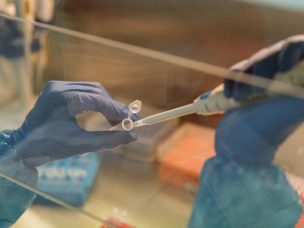Combined administration of metformin and intensive-exercise diet therapy is a useful approach for improving islet function and metabolism of glucose and lipids in diabetic renal cancer carcinoma patients, according to this study.
Tumor progression is higher in individuals suffering from diabetes mellitus (DM) than in nondiabetic patients owing to impaired immune system functioning. Metformin is used as an oral hypoglycemic agent for type 2 DM. A study investigated the outcomes of metformin and intensive-exercise diet therapy on the metabolism of lipids and glucose in diabetic patients diagnosed with renal cell carcinoma. The study reported that this therapeutic intervention significantly improved glucose and lipid metabolism along with islet function and progression-free survival (PFS). These findings are published in the journal Disease Markers.
Characteristics of the Study Participants
In this study, 120 renal cancer patients with DM were randomly assigned to two groups: one group received metformin (control group), and the other group received metformin along with intensive exercise and diet therapy (study group). The treatment was started after laparoscopic nephrectomy. The baseline characteristics of the two groups of patients were similar.
Glucose Metabolism After the Treatment
There was a significant reduction in postprandial blood glucose (PBG), fasting blood glucose (FBG), and HbA1c, with the study groups demonstrating significantly lower levels of these indices (p < 0.05).
Improvement in Lipid Metabolism
Similar to glucose metabolism, no significant differences were found in lipid metabolism across the control and study groups. However, the lipid metabolism indices, including total cholesterol (TC), low-density lipoprotein cholesterol (LDL-C), high-density lipoprotein cholesterol (HDL-C), and triglyceride (TG), significantly improved after the treatment, particularly in the study group (p < 0.05).
HOMA-ß and FINS Indicators After Treatment
The study found no statistically significant differences across the study and control groups based on the homeostasis model assessment of ß-cell function (HOMA-ß) and fasting serum insulin (FINS). However, these indicators were increased after the treatment, being significantly higher in the study group (p < 0.05).
Quality of Life of Diabetic Renal Cancer Patients
The quality of life of the patients was assessed using the health-promoting lifestyle profile-II (HPLP-II). According to the results, the HPLP-II scores were not significantly different across the study and control groups before the treatment; however, the study groups demonstrated higher HPLP-II scores after the intervention (p < 0.05).
Safety and Long-Term Efficacy of Therapeutic Intervention
Six months after the administration of the combined treatment, no significant differences were found in the overall survival (OS) and PFS rates across the study and control groups. Contrary to this, the study group’s PFS rates were significantly higher than those of the control group (p < 0.05). However, the OS rates were similar across the two groups (p > 0.05). Moreover, the study indicated no significant differences in the onset of adverse reactions across the study and control groups.
Source
Liu, Y., Meng, L. L., Li, J. W., Jin, Y. S., & An, R. H. (2022). A Randomized Study on the Effect of Metformin Combined with Intensive-Exercise Diet Therapy on Glucose and Lipid Metabolism and Islet Function in Patients with Renal Cell Carcinoma and Diabetes. Disease Markers, 2022, 7383745. https://doi.org/10.1155/2022/7383745










